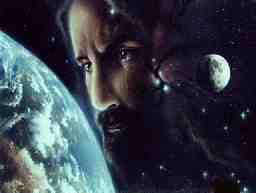
Did the biblical writer himself consider the story of Adam and Eve to be “factual”? He certainly considered it to be “true,” insofar as it speaks eloquently about God’s creative activity in bringing humankind into existence, man’s rebellion against God’s will, and the suffering of human persons in their estrangement from God, their life “outside of Paradise.” Militating against a purely literal reading of the passage, however, are elements of the story such as Adam molded by God’s hands “of dust from the ground,” the image of God as a gardener who “plants a garden in Eden,” the formation of woman from man’s rib, the “sound of the Lord God walking in the garden,” the clothing of Adam and Eve with “garments of skin,” and the simultaneous existence of other people “in the land of Nod, east of Eden.” This anthropomorphic image of God, together with logical inconsistencies in the narrative, require interpretation, as the Fathers of the Church well knew. As the Fathers also made clear, the entire narrative is to be understood in the technical sense as historical mythology: not a “fable,” a made-up folk-tale, but a narrative element of Israel’s sacred history that speaks of the ineffable interaction between God and His human creatures, a relationship that can best be described by symbolic language. (Consider, for example, the Hebrew terms ‘adam, ‘adama, which signify “man” / “earth”; and ‘eden, which means “bliss,” “delight,” a virtual synonym of “Paradise,” as in Isa 51:3; Ezek 28:13; 31:9,15-18, where the underlying mythological element is quite evident.)
The story of Adam and Eve is in fact the story of each one of us. Because of our own rebellion, we have been expelled from
The true end and fulfillment of the Genesis story is articulated most eloquently by the paschal icon of Christ’s descent into Sheol. While His body reposes in another garden, the Son of God, the Second Adam, penetrates the realm of the dead, to liberate us from the power of death that holds us in bondage and exile. There He grasps the hands of Adam and Eve, and with them He embraces each of us, to raise us with Himself and restore us to full communion with the God of Life and Love. The final meaning of this story, then, is summed up in the simple yet profound words of St Ephrem the Syrian: “Adam’s Lord came out to seek him; / He entered Sheol and found him there, / then led and brought him out / to set him once more in Paradise” [1]
[1] Hymns on
